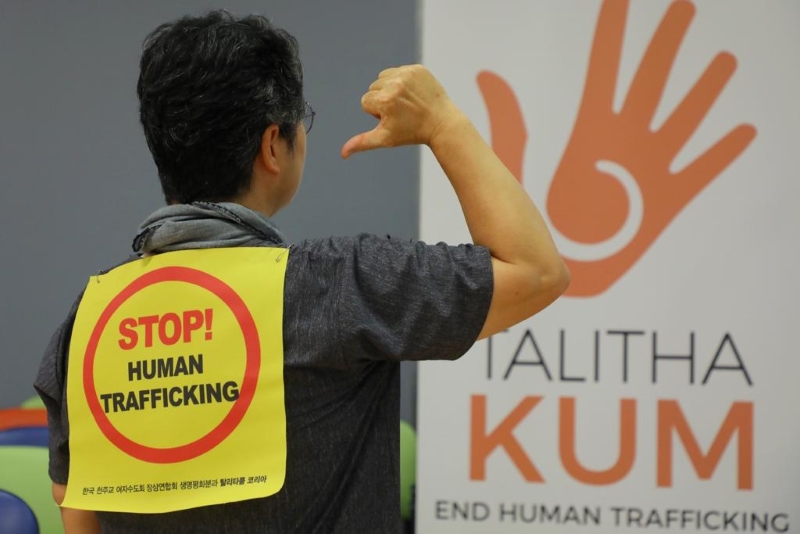Catholics from around the world have marked the World Day against Trafficking in Persons, 30 July, with warnings that human trafficking is worsening in the wake of the Coronavirus pandemic.
Caritas Internationalis, the international network of Catholic charities, warned that "migrants and informal workers are now more exposed to trafficking and exploitation" and that such vulnerable people are part of the "collateral damage" of the coronavirus pandemic. The charity singled out domestic labour, prostitution, agriculture and construction as sectors of the economy where human trafficking is on the rise.
Citing statistics collated by the International Labor Organization, Caritas stated that “40 million people in our world today” are victims of human trafficking. In their statement, issued alongside the Christian anti-trafficking coalition, COATNET, called for "urgent and targeted measures" to tackle the problem, especially in providing health and housing stability to vulnerable groups.
The Argentine Episcopal Conference marked the World Day against Trafficking in Persons on 30 July with a virtual meeting on Monday addressing human trafficking, with specialists from social, judicial, political and religious organisations, writes Ellen Teague. It was organised by the “No to Trafficking” team of the National Justice and Peace Commission.
Trafficking is a huge problem in Argentina, involving around half a million people and including victims of trafficking for work and the sex trade. It has continued throughout the last four months of coronavirus restrictions, with increasing numbers of vulnerable people at risk during the economic downturn. "We are in the current situation of an emergency, with many people without work and without food,” reported the Episcopal Commission for Migrants and Itinerant People. “The evil and corruption of gender-based violence, drug use, people living on the streets and the most vulnerable migrants does not stop,” it added, and “these realities call us to action, not to despair and indifference”. There was a call for better awareness of the problem among families and communities.
The “No to Trafficking” team was founded in 2013 to bring together groups involved in the trafficking issue to work on coordinated actions. It was inspired by the strong stand of Pope Francis against slavery and human trafficking. Marking the World Day against Trafficking in Persons was an effort to make the crime more visible, especially when public attention has been so focused on the COVID-19 pandemic.
Speaking to Vatican News, Cardinal Michael Czerny, Under-secretary of the Migrants and Refugees Section of the Dicastery for Promoting Integral Human Development, was optimistic about the progress of anti-trafficking work. Pointing to the UN's declaration of 30 July as an International Day against Trafficking, as a benchmark of progress on the issue, he emphasised that although the struggle against trafficking was a long-term one, it is not hopeless.
"It's taken ten years, fifteen years, twenty years even to get this to the point where we talk about it, we have days to remember it, we know what the word ‘traffic’ means and so on” the Cardinal said. He added that the rise of the internet gave the issue another dimension: "Human trafficking is going on in our neighborhoods; it's going on in your own neighborhood. But now with the pandemic, it’s also going on in your living room, electronically."



 Loading ...
Loading ...